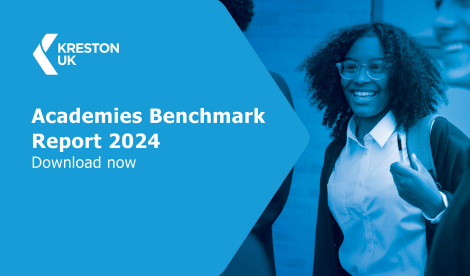Peter Manser FCA DChA
- Head of Audit and Assurance, and Academies and Education Partner
- +44 (0)330 124 1399
- Email Peter
Suggested:Result oneResult 2Result 3
Sorry, there are no results for this search.
Sorry, there are no results for this search.
View all peoplePublished by Peter Manser on 16 April 2019
Share this article
Once again, there has been minimal change from last year’s version of the document which everyone will be pleased to hear. Perhaps the most significant change is to the order of the document itself, with the Coketown Academy Trust Accounts now finding themselves towards the back of the document.
A full copy of the new AAD can be obtained here.
So what is new in the AAD 2018 to 2019?
Key change! The AAD explicitly states that all purchases of alcohol and any excessive gifts, including those purchased with unrestricted funds, are deemed to be irregular expenditure [Annex B section 4.14].
The ESFA are now very clear that all purchases of alcohol should be “off the books” of an Academy Trust. A perfect example of achieving this would be to ask the Parent Teachers Association to purchase the alcohol, run a stall and donate the takings to the Trust.
Key change! The AAD has expanded the areas to consider with regards to governance to support the regularity conclusion [Annex B section 4.13].
This comes as no surprise as Lord Agnew is of the belief that many Academy Trust failures arise from poor governance arrangements – this is another step from the ESFA to help highlight Trusts which may not quite have a strong governance structure in place as expected. Just some of the areas to consider include:
Therefore Trusts should expect their auditors to be asking more questions this year regarding governance – if they haven’t done so already.
The AAD now removes the requirement to show a combined Funds Summary note which covers both the current accounting period and previous accounting period. This was a case of mis-interpretation by the ESFA last year.
The AAD also removes the requirement to state the dates of payments made regarding non-statutory or non-contractual staff severance payments.
The AAD has revised the tangible fixed asset categories to align these with the Sector Annual Report and Accounts – these now include:
The AAD also specifies that where an asset comprises of two or more components which have substantially different lives, for example roof, boilers, lifts, each component must be depreciated separately over its useful economic life [section 6.3.13].
This is an interesting change. For example, will we see Trusts now separate out their roof from the buildings on the asset register and depreciate this over a different period? How will a Trust separately value the roof? Do Trusts have to obtain a buildings valuation which shows a breakdown of the various components? This will certainly be a discussion for Trusts to have with their advisors.
The AAD also requires the Related Party Transactions note to confirm that the new Related Parties reporting arrangements from 1 April 2019 have been complied with [Section 6.6].
A copy of the annual report and financial statements must be sent to every member of the Trust and to every person who is entitled to receive notice of general meetings [section 1.6.3]. This is standard practice for companies in accordance with the Companies Act 2006 but the introduction of this to the AAD perhaps indicates some Trusts have not been performing this duty.
Trusts with a subsidiary trading company may only accrue income where there is a legal obligation to make the payment e.g. a deed of covenant is in place [section 5.1.19].
Trusts which recognise the use of premises which are given rent-free (typically church schools) should reflect the future notional donation (if it can be reliably measured) as a debtor with a corresponding entry for the future rental expense as a creditor [section 7.7].
As mentioned at the outset, there are not many changes to the AAD this year but the ESFA are looking closely at Trust’s governance arrangements more and more. Trusts need to be mindful of this as they continue to grow and develop.
However, if you are concerned or indeed unsure of any of the changes mentioned above, you should discuss these further with your advisers.
Make sure you download your complimentary copy of Kreston’s Academies Benchmark Report 2019 here: http://eepurl.com/ge8wvr
This year the report includes over 350 Trusts representing nearly 1000 schools and is based on those Academies that prepared financial statements for the period ended 31 August 2018 and which were audited by member firms of Kreston UK.
Share this article
This site is protected by reCAPTCHA and the Google Privacy Policy and Terms of Service apply.
Our complimentary newsletters and event invitations are designed to provide you with regular updates, insight and guidance.
You can unsubscribe from our email communications at any time by emailing [email protected] or by clicking the 'unsubscribe' link found on all our email newsletters and event invitations.
This site is protected by reCAPTCHA and the Google Privacy Policy and Terms of Service apply.




